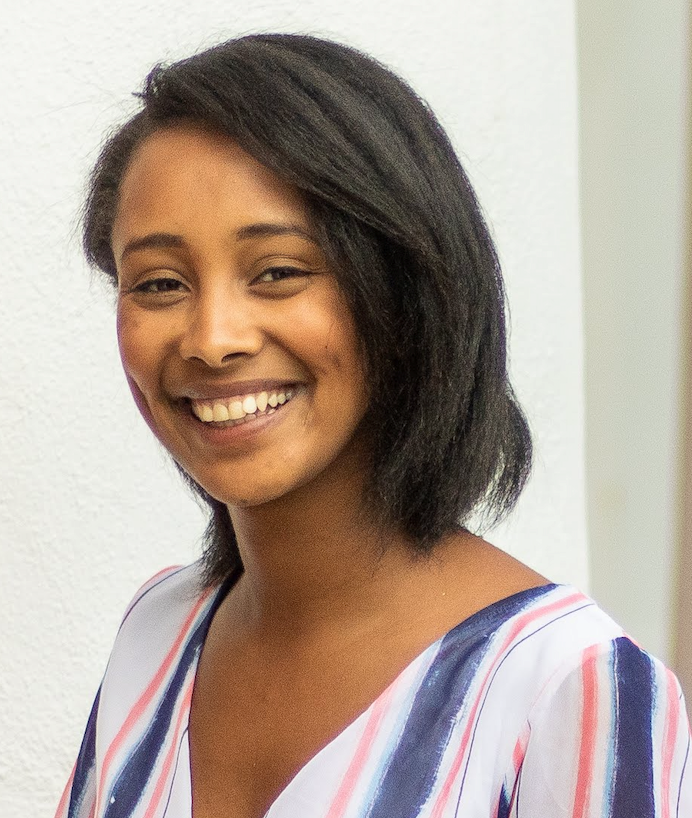Research Supplements to Promote Diversity in Health-Related Research
Our center is seeking to match eligible scholars from backgrounds underrepresented in academia (URiA) to research mentors at Harvard and our affiliate organizations to apply for NIH-funded Research Supplements to Promote Diversity in Health-Related Research. We encourage applications from undergraduates, post-baccalaureates, graduate students, post-doctorates, and faculty seeking a career in health-related research.
A current list of Harvard principal investigators who have indicated an interest in an applying for an NIH supplement to mentor a diversity scholar can be found below. To indicate your interest in being matched with a principal investigator, please fill out our brief application form. Please note that a commitment of 1-2 years is required.
Eligible mentors can express interest in the Form linked to the right. An example application can be made available to mentors upon request.
Apply now!
Mentor Interest Form
Current Mentors
Click the name of the PI for more information.
Jodie Babitt, MD
Affiliated Institutions: MGH
Accepting: Post-doctorates, Graduate students
Project(s): Regulation of Iron Homeostasis by BMP Signaling; BMP Ligands in Hepcidin Regulation
Jason Block, MD
Affiliated Institutions: Harvard Pilgrim Healthcare
Accepting: Faculty, Post-doctorates, Graduate students
Project(s): Medications and Weight Gain in PCORnet: The MedWeight Study; New Insights into the Federal Calorie Labeling Law
Mary Bouxsein, PhD
Affiliated Institutions: BIDMC, MGH
Accepting: Faculty, Post-doctorates, Graduate students, Post-baccalaureates, Undergraduates
Project(s): Mechanisms underlying skeletal fragility associated with Type 1 diabetes; Risk factors for vertebral fractures in older adults
Katherine Burdick, PhD
Affiliated Institutions: BWH
Accepting: Faculty, Post-doctorates
Project(s): Brain-based Mechanisms of Emotion Regulation in Aging and Mood Disorders
Raymond Chung, MD
Affiliated Institutions: MGH
Accepting: Faculty, Post-doctorates, Graduate students, Post-baccalaureates, Undergraduates
Project(s): HIV HCV HIPPO and Liver disease progression
Christopher Duggan, MD, MPH
Affiliated Institutions: BCH, HSPH
Accepting: Graduate students
Project(s): Assessing the relationship between environmental enteric dysfunction and poor growth via a newly developed 11-plex assay; Training grant in academic nutrition
Karen Emmons, PhD and Elsie Taveras, MD, MPH
Affiliated Institutions: HSPH, MGH
Accepting: Faculty, Post-doctorates, Graduate students, Post-baccalaureates, Undergraduates
Project(s): The Implementation Science Center for Cancer Control Equity
Eric Gale, PhD
Affiliated Institutions: MGH
Accepting: Faculty, Post-baccalaureates
Project(s): Molecular Magnetic Resonance of Inflammation (Focus on imaging inflammation in NASH pathogenesis)
Jaime Hart, ScD
Affiliated Institutions: BWH, HSPH
Accepting: Faculty, Post-doctorates, Graduate students, Post-baccalaureates, Undergraduates
Project(s): The effects of environmental exposures on semen quality and the sperm epigenome
Marie-France Hivert, MD
Affiliated Institutions: HMS, Harvard Pilgrim Healthcare, MGH
Accepting: Graduate students
Project(s): Gestational diabetes pathophysiology uncovered by placental transcriptomics
Peter James, ScD
Affiliated Institutions: Harvard Pilgrim Healthcare
Accepting: Graduate students
Project(s): Built Environment Assessment through Computer visiON (BEACON): Applying Deep Learning to Street-Level and Satellite Images to Estimate Built Environment Effects on Cardiovascular Health
Francine Laden, ScD
Affiliated Institutions: HSPH, BWH
Accepting: Graduate students
Project(s): Relationship between multiple environmental exposures and CVD incidence and survival: vulnerability and susceptibility; Early life exposure to the natural, built, and social environments and incident hypertension; Nurses’ Health Study 3: A multiple exposure environmental epidemiology cohort of young adults
Elizabeth Lawson, MD
Affiliated Institutions: MGH
Accepting: Faculty, Post-doctorates, Graduate students, Post-baccalaureates
Project(s): Oxytocin as a neuroendocrine therapy for obesity in youth
Josiemer Mattei, PhD, MPH
Affiliated Institutions: HSPH
Accepting: Faculty, Post-doctorates, Graduate students
Project(s): PROSPECT: Puerto Rico Observational Study of Psychosocial, Environmental, and Chronic Disease Trends
Emily Oken, MD
Affiliated Institutions: Harvard Pilgrim Healthcare
Accepting: Faculty, Post-doctorates, Graduate students, Post-baccalaureates, Undergraduates, High School Students
Mary-Elizabeth Patti, MD
Affiliated Institutions: Joslin
Accepting: Graduate students, Undergraduates
Elsie Taveras, MD, MPH
Affiliated Institutions: MGH
Accepting: Faculty, Post-doctorates, Graduate students, Post-baccalaureates, Undergraduates
Project(s): Implementation of Childhood Obesity Treatment Innovations to Improve Outcomes of Low-Income Children: The Connect for Health II Study
Deirdre Tobias, DSc
Affiliated Institutions: BWH
Accepting: Graduate students, Post-baccalaureates
Project(s): Health effects of substituting sugar-sweetened beverages with non-caloric beverages in adults with overweight and obesity
Alexander Tsai, MD, PhD
Affiliated Institutions: MGH
Accepting: Faculty, Post-doctorates, Graduate students
Project(s): Social networks, HIV stigma, and the HIV Care Cascade in Rural Uganda
Hui Wang, PhD
Affiliated Institutions: MGH
Accepting: Graduate students, Post-baccalaureates
Project(s): Volumetric optical connectome microscopy of human cerebellar circuitry
Davene Wright, PhD
Affiliated Institutions: Harvard Pilgrim Healthcare
Accepting: Undergraduates, High School Students
Project(s): Parent-Perceived Important Topics for Childhood Obesity (PPITCH)
NIH Diversity Supplement Awardee Spotlight 1: Ethiopia Getachew
Ethiopia applied for an NIH Diversity Supplement Award during her senior year of her undergraduate education. She is currently a first-year medical student at Harvard Medical School and continues to do research as an intern at the Neuroendocrine Unit at MGH.
Click the questions below to read her testimonial:

What did the application process involve?
Along with my research mentors, I developed an independent research project to investigate sex differences in the neurobiology of obesity. We proposed a research plan and created a detailed research and career development timeline and plan. I also wrote up a biosketch and a personal statement, expanding on my previous experiences in research and why I wanted to pursue this opportunity.
How long did it take between applying and receiving your award?
It took about 5 months.
What was your research experience like?
In addition to working on my research project, I served as the lead coordinator for the parent study by running recruitment, enrollment, data management and more. I was trained on endocrine, cognitive and neuroimaging techniques, IRB policy and good clinical practice skills. I gained experience working on an interdisciplinary team, as I often interacted with nutritionists, radiologists, lab technicians, psychologists and more. I also frequently attended clinical and ground rounds, and presentations by renowned physicians and researchers. To further develop my statistical skills, I also enrolled in a year-long Harvard Medical School Applied Biostatistics course.
Were there specific accomplishments that came out of this?
My first author abstract, “Hyperactivation of Reward and Cognitive Control Brain Regions in Response to Food Images in Women Compared to Men with Obesity,” was selected for oral presentation at ENDO 2020. I recently submitted another abstract to ENDO 2021 and am currently drafting a first-author manuscript related to my independent project.
How did this experience help you in your professional trajectory?
Through this experience, I reaffirmed my interest in academic medicine and gained invaluable knowledge of obesity pathophysiology and multidisciplinary clinical research. My training in research methodology, advanced statistical analysis and endocrine, cognitive, and neuroimaging assessment techniques, allowed me to stand out as a medical school candidate, and I am sure it will continue to open a lot of doors for me. I also received overall career guidance and mentorship from Dr. Elizabeth Lawson (PI) and co-mentors Drs. Laura Holsen, Franziska Plessow and Camille Powe, all of whom continue to guide me through medical school and my professional development journey.
Do you have any advice for applicants?
My biggest advice for applicants is to find a mentor who is invested in your growth, and whose work you are interested in. Secondly, make sure you come up with a project that you are passionate about, and interested in learning more about. Finally, be flexible! Through this experience, I’ve learned that timelines can change, recruitment can lag, and unexpected hurdles may come up. However, remaining flexible and coming up with creative solutions is as big a part of this experience as the clinical and research skills you gain.

NIH Diversity Supplement Awardee Spotlight 2: Fatima Stanford, MD, MPH, MPA
Dr. Stanford is a highly acclaimed obesity medicine physician scientist. She has authored almost 100 peer review publications. She applied for the NIH Diversity supplement as a junior faculty member and Instructor of Medicine and Pediatrics at Massachusetts General Hospital and Harvard Medical School.
Click the questions below to read her testimonial:
What did the application process involve?
The process involved first speaking with my primary mentor, Dr. Madhu Misra. We reached out to the program officer who oversaw her R01 grant on bone outcomes in adolescents who undergo metabolic and bariatric surgery. Concurrently, we reached out to the NIDDK program officer for diversity supplements. After speaking with both of these individuals, we found out that I would be a suitable candidate for application and we submitted a full supplement to cover two years of support on her grant. In this particular process, it is prudent to indicate what you will contribute to the project. However, you must also delineate what career development you will garner from participation as a recipient. Diversity supplements are only accepted in certain months out of the year. It is important to check that you submit in a timely fashion for whichever due date is available.
How long did it take between applying and receiving your award?
After submitting my initial application, I waited for 2 to 3 months. I found out that it was not accepted at that stage. As such, I resubmitted an application and was accepted 2 to 3 months later. So, the entire process with the two submissions took on the order of 6 to 8 months.
What was your research experience like?
My research experience was pivotal in my career development as a physician scientist. I would spend time with my senior mentor and an additional mentor, Dr. Miriam Bredella. I was entrenched within all of the activities of the research project which included work with subjects, analysis of research, and thoughts for future directions.
Were there specific accomplishments that came out of this?
It helped me secure dedicated time to work on research, and I was able to publish quite a bit during this time. It also gave me the opportunity to have protected time to present my research throughout the country at several conferences and meetings.
How did this experience help you in your professional trajectory?
I believe that this experience was a catalyst for my career as a physician scientist. It came at a crucial time in my career, and it help me to bridge the gap of funding.
Do you have any advice for applicants?
My advice to applicants is to work to achieve a diversity supplement. Please note that you should be engaged with the entire process to ensure success. If you were unsuccessful in your first attempt, I do recommend applying once more.
